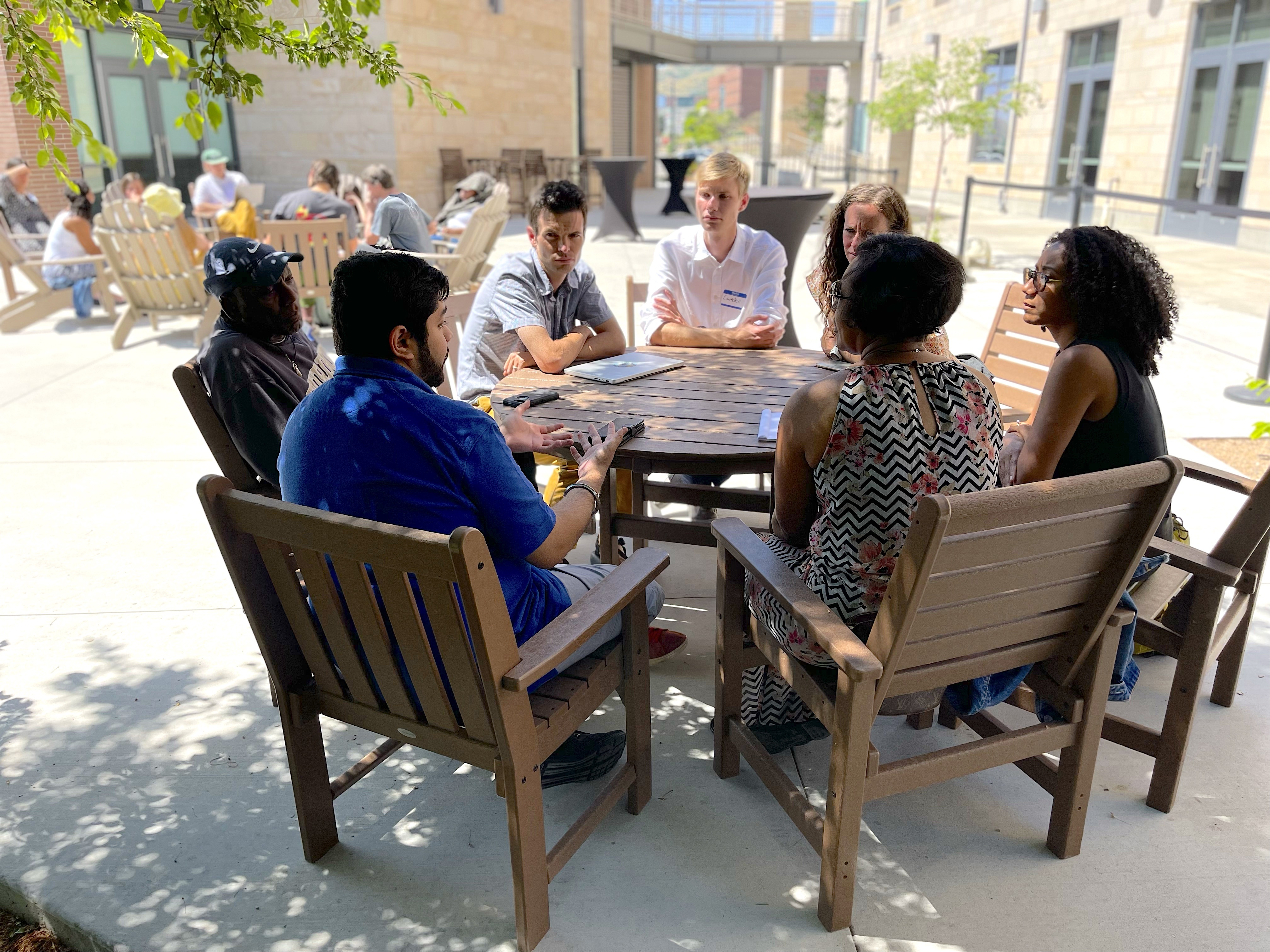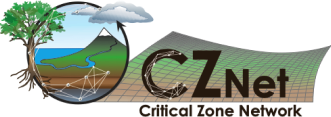Environmental justice quickly rose to the top of important discussions for domain scientists to have during the Critical Zone Collaborative Network Big Data Cluster’s in-person meeting in Salt Lake City in June 2023.
Posted: December 22, 2024

The Big Data Cluster, one of nine in the Network, gathered ahead of a three-day meeting of the whole Network. The Cluster is approaching year 4 of the 5 year project. University of Vermont based Julia Perdrial is one of the lead principal investigators on the project and describes the Cluster’s work as they approach the final years as fitting the pieces of a puzzle together. Year one was crafting the pieces, years two and three was arranging the pieces in a way that they could eventually fit. Now it’s time to click everything into place.
As Desert Research Institute based Cluster member Gabrielle Boisrame described the goal of the in-person meeting, “we can find out how far apart the pieces are,” and do the hard work to connect them into a picture.
The difficulty with this puzzle is that there’s no box to compare the picture the puzzle forms with what the puzzle is supposed to look like.
The Big Data Cluster has data in the name, and data in their hearts. The overall goal of the work is to streamline the collection of hydrological big data sets and to simplify how researchers can access that data while seeking answers to their own research questions.
An education team was built into the Cluster from the outset with the intent that Cluster members would work with classroom teachers to include data analysis using computer science into their classes.
Then they listened to the teachers. Who had very different needs. K-12 educators in Mississippi didn’t need to know what university professors in Vermont thought they should be teaching. They wanted to get their students excited about science itself.
Education team members found themselves included in more and more meetings, and spinning off questions and discussions from these meetings into more environmental justice--focused projects which have been funded.
Talking about progress on that project brought the conversation into the full group, in-person meeting in June.
Conversations about equity, racism, systemic oppression, and a desire to dismantle the current structures of power are difficult. But important to have in all fields including critical zone science.
Members of the Big Data Cluster welcomed that discomfort in the room.
The conversation started with recognizing a need to work at the community level to raise awareness about the importance of securing good water quality for all people who live in an area. Community education would, the Cluster members suggested, lead to the election of policy makers that would be dedicated to improving infrastructure in areas of cities that were redlined in the mid-1900s.
This discussion track ran into the idea that working on environmental and social justice at the community level wasn’t paying attention to the system of oppression that remains in place in the United States. A system where one voice in a policy making body can, with a veto, undo all the work of the community voters who have gone to the polls to act on that education and outreach.
With both groups caught at the impasse of grassroots action versus some overhaul of existing power structures the meeting moved on. But the topic of environmental justice was brought up again at the end of the day during the group reflection activity.
At the end of the day the participants started a discussion about when, or even if, scientists should take more of an activist role in their communities, something that’s not usually encouraged for researchers.
Some members of the group expressed that such behavior wasn’t an option for them. That they would lose their jobs if they were to move from disinterested reporters of facts to active advocacy for or against policies.
Which again left the group of almost two dozen scientists, from all points along the career path, from all kinds of ethnic and cultural backgrounds, from all over the US, wondering if there was any kind of middle ground between publishing good science but not being an advocate for the published conclusions and participating in public displays of activism that could result in the end of a career.
Who speaks for science? The scientists who are experts in their areas of study? Or the people who try to spin it to fit their own narratives?
Like so many publications this one ends with the common phrase there’s more work to be done.
And the members of the Big Data Cluster will be doing some of that work during the last two years of the project. And beyond.

 Big Data
Big Data